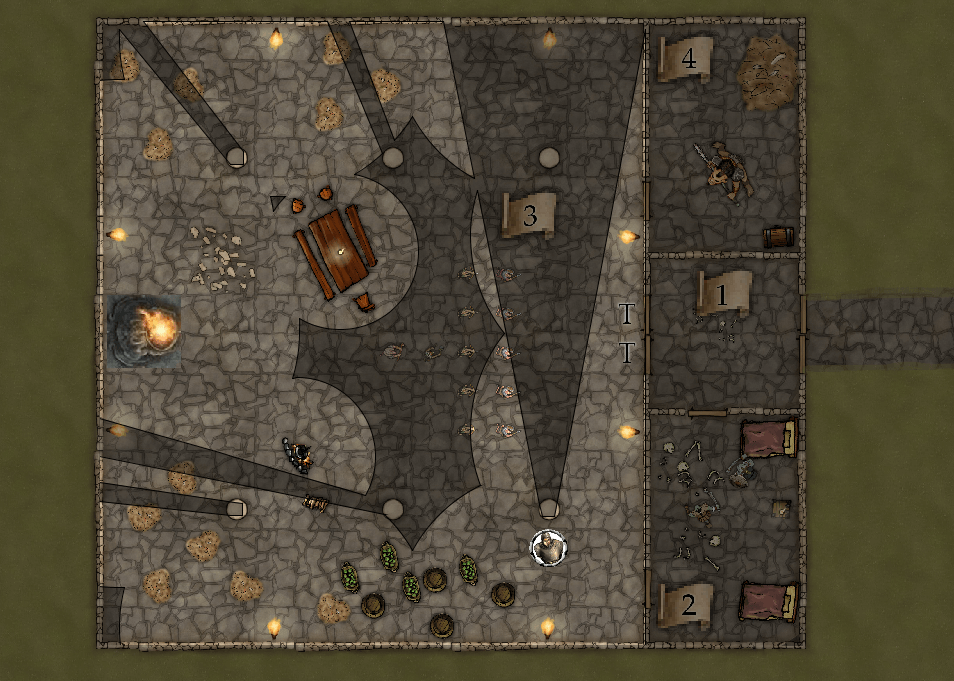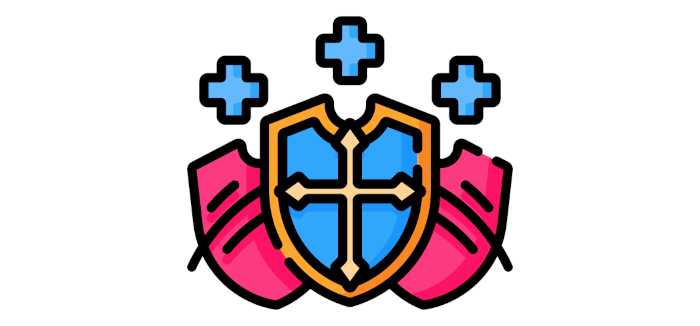MapTool is primarily a Virtual Table Top, replacing pen, paper, battle mats, and dice. MapTool is intended for use in supporting table-top role playing games, such as D&D, PathFinder, GURPS, Call of Cthulhu, Star Wars, Shadowrun, and many others. It is a mature and full-featured Virtual Tabletop (VTT) application that allows users to create, manage, and play their favorite pen and paper either in person or remotely.
This is an extremely flexible VTT with all the bells and whistles. You can utilize the integrated server function to connect to players wherever there’s an Internet connection.
This is free and open source software.
Features include:
- Supports advanced features like Dynamic Lighting, Vision, Fog of War and much more.
- Features its own scripting language – allowing you to code and share your own creations.
It is “game system agnostic”, meaning that while MapTool has special support for some game systems, there is no requirement for you to use these features. - A set of “topology” tools to enable the GM to limit the view of their players, revealing the map as they explore it. Walls, pits, hills and other objects can prevent players from seeing what lies behind them.
- Vision features allows darkness to be made to fall, blinding players who lack a light. Lights can be set on objects or on tokens that illuminate however much of the map you define. If the GM wishes, s/he can limit the view of players to what their specific token sees, adding a whole new level to the experience of splitting up the party. Woe be to the character who can’t see around the corner of a wall but steps out into the view of the enemy!
- Macro facility that allows you to automate just about any facet of your game. These are entirely optional bits of code you write yourself or borrow from others.
- Cross-platform support – runs under Linux, macOS, and Windows.
Website: github.com/RPTools/maptool
Support:
Developer: RPTools
License: GNU Affero General Public License v3.0

MapTool is written in Java. Learn Java with our recommended free books and free tutorials.
| Popular series | |
|---|---|
| The largest compilation of the best free and open source software in the universe. Each article is supplied with a legendary ratings chart helping you to make informed decisions. | |
| Hundreds of in-depth reviews offering our unbiased and expert opinion on software. We offer helpful and impartial information. | |
| The Big List of Active Linux Distros is a large compilation of actively developed Linux distributions. | |
| Replace proprietary software with open source alternatives: Google, Microsoft, Apple, Adobe, IBM, Autodesk, Oracle, Atlassian, Corel, Cisco, Intuit, SAS, Progress, Salesforce, and Citrix | |
| Awesome Free Linux Games Tools showcases a series of tools that making gaming on Linux a more pleasurable experience. This is a new series. | |
| Machine Learning explores practical applications of machine learning and deep learning from a Linux perspective. We've written reviews of more than 40 self-hosted apps. All are free and open source. | |
| New to Linux? Read our Linux for Starters series. We start right at the basics and teach you everything you need to know to get started with Linux. | |
| Alternatives to popular CLI tools showcases essential tools that are modern replacements for core Linux utilities. | |
| Essential Linux system tools focuses on small, indispensable utilities, useful for system administrators as well as regular users. | |
| Linux utilities to maximise your productivity. Small, indispensable tools, useful for anyone running a Linux machine. | |
| Surveys popular streaming services from a Linux perspective: Amazon Music Unlimited, Myuzi, Spotify, Deezer, Tidal. | |
| Saving Money with Linux looks at how you can reduce your energy bills running Linux. | |
| Home computers became commonplace in the 1980s. Emulate home computers including the Commodore 64, Amiga, Atari ST, ZX81, Amstrad CPC, and ZX Spectrum. | |
| Now and Then examines how promising open source software fared over the years. It can be a bumpy ride. | |
| Linux at Home looks at a range of home activities where Linux can play its part, making the most of our time at home, keeping active and engaged. | |
| Linux Candy reveals the lighter side of Linux. Have some fun and escape from the daily drudgery. | |
| Getting Started with Docker helps you master Docker, a set of platform as a service products that delivers software in packages called containers. | |
| Best Free Android Apps. We showcase free Android apps that are definitely worth downloading. There's a strict eligibility criteria for inclusion in this series. | |
| These best free books accelerate your learning of every programming language. Learn a new language today! | |
| These free tutorials offer the perfect tonic to our free programming books series. | |
| Linux Around The World showcases usergroups that are relevant to Linux enthusiasts. Great ways to meet up with fellow enthusiasts. | |
| Stars and Stripes is an occasional series looking at the impact of Linux in the USA. | |

